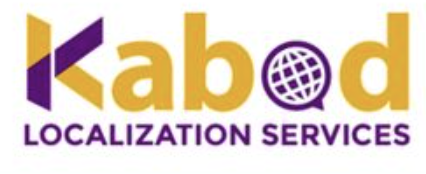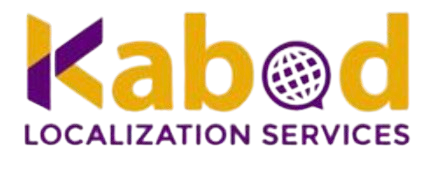PERSPECTIVE
Redefining collaboration between linguists and tech companies for increased visibility and impact
There are many things that linguists can offer in the AI era. the type of input given to machines, suggesting what type
could be appropriate for a given task, and showing machine learning metrics. Though there are other services, such as software testing, most of the work of linguists and language specialists is to see that the
intended language is representative of and natural to the speech community.
There seems to be an under
representation of Africans in developing technological language products.
This is basically because there is a mismatch between language service providers and
technological companies’ requirements/ job expectations. This essay aims to analyze existing challenges in what
language professionals currently offer and suggest ways to improve that offer for a more productive and effective collaboration.

Obstacles Hindering the Integration of Language Service Providers in the Tech Industry
1. Lack of Collaboration and Language Resources
First, there is inadequate collaboration between language specialists and their intended customers. Since many technology companies are interested in the data and never in how the data was acquired, they are not interested in data quality. Most of the time, linguists are always at the low end of the spectrum. They are not always catered to as part of the project but as ‘laborers’ to work and be dumped at some stages of the projects. Additionally, there are few collaborations between LSP and tech companies, which leads to a lack of language resources. Though it appears there are some collaborations, it does not have a firm root. Many African languages are under-resourced because there are few resources to enhance their representations in AI-driven product developments (Bird 2020; Dunbar 2020; Nevins 2013). Because there are few real-time collaborations, many things have been done in linguistics that seem to be reinvented in computer science. For example, the approach to semantics from linguistics is different from what is done by computer scientists. This leads to much unawareness among the tech companies. They do not leverage what linguists provide. Since LSP works are invisible to them, they mostly reinvent the wheel. Their approach to meaning, for example, is not new because semantics/pragmatics principles have been studied in linguistics, and LSPs are mostly aware of them. No visibility equals a lack of collaboration, which leads to the lack of resources created by LSPs incorporated for the tech companies. As stated earlier, little to no attention is paid to how data is collected. LSPs are interested in the language while the tech people are interested in the algorithms. Invariably, tech people aim at creating algorithms for what the language represents. Since they do not seem to care as much about the data as they care about the algorithms, they may be creating another type of intelligent system that is not representative of what native speakers are doing. This is a counterproductive effort from both ends. Language service providers should be at the end of providing input while the tech people seek to understand and incorporate it. To some extent, the tech company cares about “online” rather than “on-land” collaborative efforts. They would instead scrape the web without consulting native language service providers. The variation in the interest fosters inadequate visibility among the LSPs because the readily recruiting companies look at different parts. At the same time, they are interested in the process of data and not only the data itself.
2. Lack of representation
There is a gross lack of representation of linguists in the tech space. Because many people do not know how to transfer what they learn in the language to what is expected as the final product, few competent hands offer quality services to tech companies. This lack of
representationalso rests on the fact that few linguists are native speakers of many
African languages in the tech space. Besides, many linguistics
departments in African Universities fall within arts and humanities with little to no
intersections with other computer science.
As a result of this, many linguists are not trained in the intersection between language and computer. This further
strengthens the fact that linguists are scarce in the tech space. The lack of readily available tech skills by the LSP makes them invisible to tech companies. Everything is based on marketing strategies, and since anyone without the required skills will not participate, LSPs are not found trading their skills.
Consequently, there are lots of resource shortages on both the part of the language service providers and tech companies. On the part of language providers, there are shortages of payment and involvement. Since many deep projects usually place linguists at the low spectrum, they do not have much budget for them or sometimes even solicit free services. Also, linguistic knowledge is lagging in the mainstream of different tech work and outputs. On the part of the tech companies, there are no competent linguist-tech-driven personnel ready for thorough collaboration. They often have
no options other than to do their things themselves services to tech companies. This lack of representationalso rests on the fact that few linguists are native speakers of many African languages in the tech space. Besides, many linguistics departments in African Universities fall within arts and humanities with little to no intersections with other computer science. As a result of this, many linguists are not trained in the intersection between language and computer. This further strengthens the fact that linguists are scarce in the tech space. The lack of readily available tech skills by the LSP makes them invisible to tech companies. Everything is based on marketing strategies, and since anyone without the required skills will not participate, LSPs are not found trading their skills. Consequently, there are lots of resource shortages on both the part of the language service providers and tech companies. On the part of language providers, there are shortages of payment and involvement. Since many deep projects usually place linguists at the low spectrum, they do not have much budget for them or sometimes even solicit free services. Also, linguistic knowledge is lagging in the mainstream of different tech work and outputs. On the part of the tech companies, there are no competent linguist-tech-driven personnel ready for thorough collaboration. They often have no options other than to do their things themselves and reach approximate assumptions as quickly as possible. Since the visibility of LSP is partly based on their skill set, which is lagging, many tech companies do not place value on what they contribute to their products. This is one of the reasons they are treated as “second-class citizens” in the tech industry. They are not visible to them because the tech companies do not even know how useful they are.
3. Low Self-esteem
There is low self-esteem on the part of the linguists. Though applying a given course of study presumes its importance on the impact of the problem it could solve, many linguists are unaware of the power of linguistics in the AI era. Canonically, many people confuse linguists for polyglots. Most times, the low esteem is more on people who studied indigenous African languages than with those whostudied foreign languages. Though few opportunities exist for everyone studying languages, those studying African languages do not usually even carry themselves as specialists.
Proposed Solutions to Enhance Language Service Provider Integration in Tech
There are different solutions to the identified problems. The following are a few suggestions:
- Change of perspective: the lack of collaboration should be seen as a blessing, not a curse. Since different fields make up AI, linguists focusing on just the input of the machine should not be a problem. Also, linguists should not see themselves as less contributors because they are not creating algorithms.
- Creation of interdepartmental majors and minors: if linguistics departments could be created with the intersections from computer science as seen at Carnegie Mellon University in Pittsburgh, Stony Brook University in New York and University of Arizona, then there would be more people within the tech space to understand how these fields interact and to also strengthen creating language product services.
- Creation of more resources: with the creation of interdepartmental operations between language, linguistics and computer science, then the need for more resources will be a struggle between the departments to appreciate each other’s work. When there is appreciation between the two fields, then puttingthem on them on a quality budget will not be problematic.
- Methodology documentations: apart from documenting theoretical methodologies, linguists should see that they document the process of creating data for their research. The methodology documentation will strengthen and provide insights for technology companies to incorporate in their works.
- Linguistics Sensitization: there should be more awareness among language service providers. They could be sensitized by volunteering on different projects, attending seminars/conferences and reading the intersection of linguistics and AI.
In conclusion, there are different intersections between language service providers, linguists, and AI but it appears there has not been collaborative efforts towards problem solving. This suggests that there might have been some challenges drifting them apart which have been discussed alongside their suggested solutions. With vast languages in Africa, Africa is the future in the AI era!
Are you a language service provider, freelancer, linguist, or language professional with an article or opinion piece on the language industry in Africa? We want to feature your work in our magazine! Contact us now at languages@ kabodgroup.com or visit here for more details.
Get Updates And Stay Connected -Subscribe To Our Newsletter
Relevant Pages
Contact Info
- 055 015 75 72 / 059 900 1499
- languages@kabodgroup.com
- L52 Patan Gbe Avenue, East Legon Extension, Accra, Ghana

